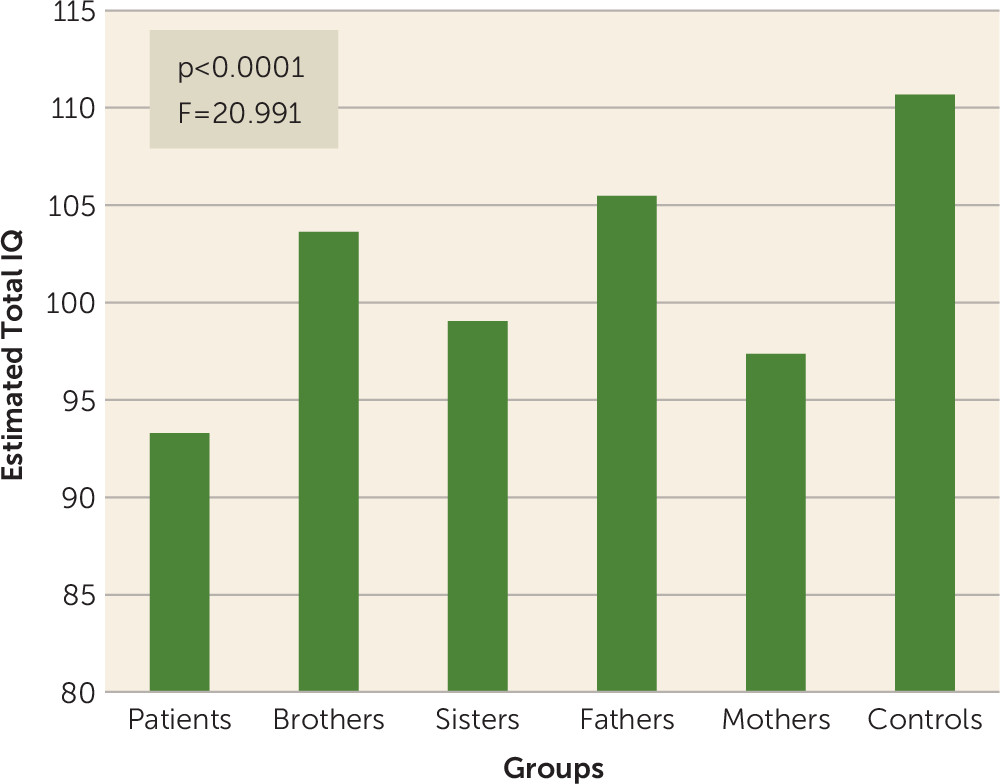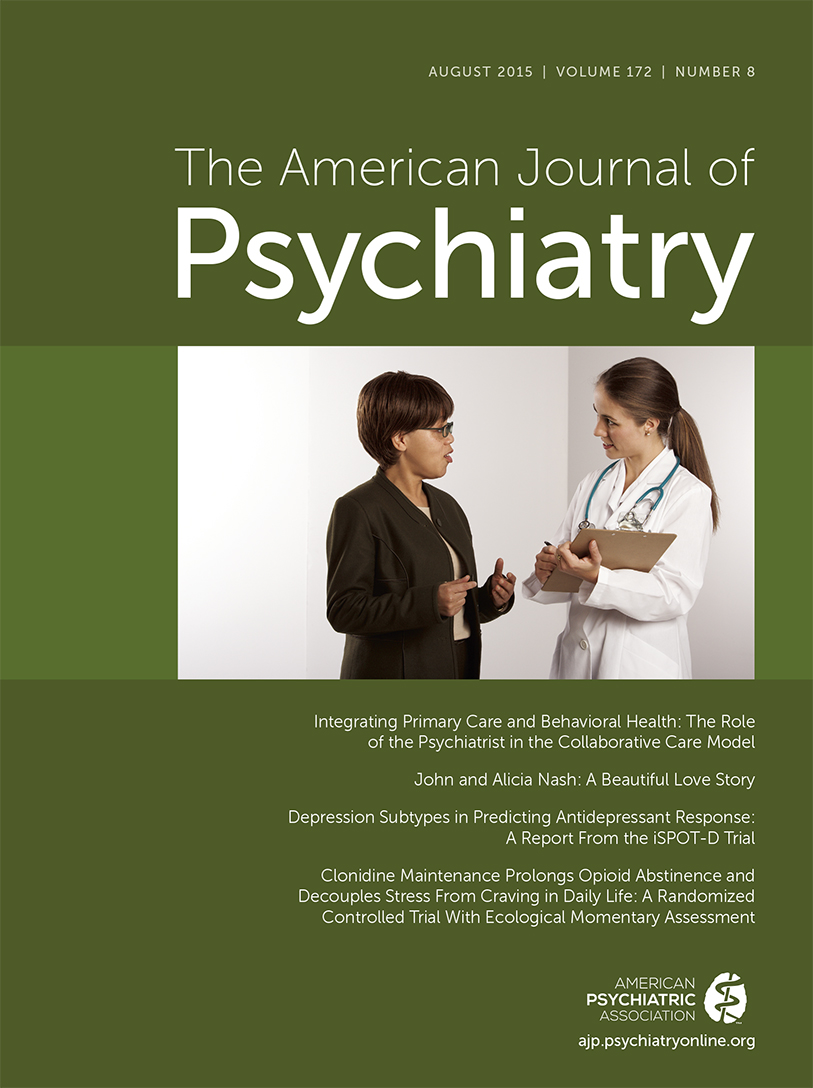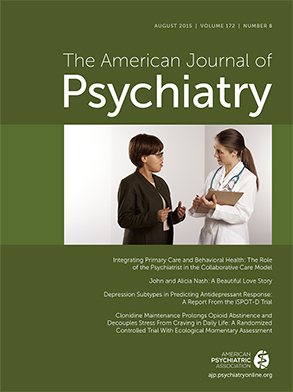T
o the E
ditor: We read with interest the paper by Kendler and colleagues (
1), published in the March 2015 issue of the
Journal, wherein the authors conducted a study to investigate different aspects of the IQ-schizophrenia relationship in a large sample of Swedish males. The authors concluded that, depending on IQ, genetic liability differently influences the risk for schizophrenia.
In particular, we focused on Table S1 in the data supplement that accompanied the online edition of the article. The table showed that genetic liability for schizophrenia is much higher in mothers (p<0.0001; odds ratio=8.28) than in fathers (p<0.0001; odds ratio=5.44), although the predicted probabilities of developing schizophrenia were not so different in the case of mothers or fathers affected by schizophrenia (2.98% and 1.92%, respectively).
These results did not surprise us. Comparing six groups in a sample of 818 subjects (209 schizophrenia patients, 108 brothers, 130 sisters, 99 fathers, 118 mothers, and 154 healthy controls), we found that the IQ differences between the healthy control and other groups were all statistically significant (p<0.05), patients performed significantly worse than brothers (p<0.001), and mothers’ IQ was significantly worse than that of the healthy control group (p<0.001), the brothers’ group (p=0.001), and the fathers’ group (p=0.003) (
Figure 1). These results were obtained comparing groups in terms of IQ through an analysis of covariance using as covariates age and cannabis misuse.
The combined interpretation of our results with those of Kendler’s study supports our hypothesis that IQ could be a reliable marker of genetic susceptibility. Then, relatives who are carriers of an increased genetic predisposition for schizophrenia (e.g., mothers>fathers) would present a lower IQ as showed by our results. This consideration is also supported by studies showing a relationship between IQ and schizophrenia risk (
1–
3).
In light of a higher genetic liability for schizophrenia in mothers than in fathers and in light of the results of our study (statistically significant lower total IQ in mothers than in fathers of schizophrenia patients), we suggest that IQ would probably represent the phenotypic expression of a major genetic liability.
Finally, the dichotomy presented in Kendler’s study between genetic liability of parents of schizophrenia patients (mothers>fathers) and predicted probabilities (2.98% compared with 1.92%) might be explained by sex-related factors (e.g., testosterone exposure) as a consequence of the exclusively male sample of the study. Future research would be needed to confirm our hypotheses.


